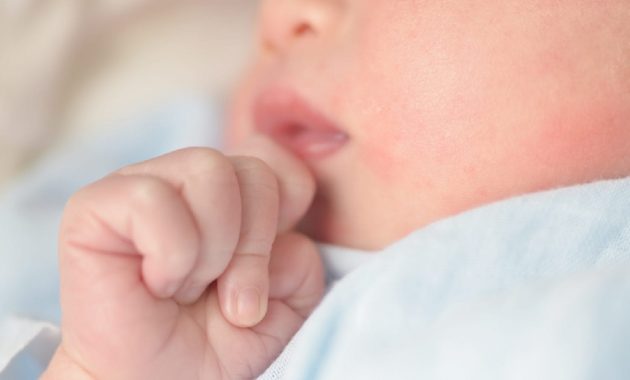Dengue symptoms may be difficult to spot in babies, as they are similar to illnesses like flu. Know how to spot the symptoms of dengue in infants and what to do.
Dengue, a viral infection transmitted by the bite of Aedes mosquitoes, primarily Aedes aegypti, can affect anyone, including babies. High fever and skin rash can be easily spotted in babies. But not all the symptoms of dengue are obvious when it comes to little ones. It is easy to think they just have the flu and not dengue. Amid a rise in dengue cases in Indian states like Punjab, Karnataka, Tamil Nadu, and Bihar, protect you child from dengue. Apart from knowing how to manage dengue in infants, you should also be able to spot the symptoms in babies.
What cause dengue in babies?
Like adults, babies get dengue when they are bitten by infected Aedes mosquitoes, which breed in stagnant water around houses and public spaces. Babies are at a higher risk of developing severe dengue illness than healthy adults, as their immune systems are weaker, according to Unicef.

“Crowded living conditions and exposure to environments where mosquito control measures are not adequately implemented can also increase the risk,” says pediatrician Dr Rajiv Chhabra. Parents might inadvertently expose babies to mosquitoes if they are not protected by repellents, or mosquito nets. Pregnant women with dengue may also pass on the mosquito-borne disease to their little ones during pregnancy or around the time of child delivery.
What are the symptoms of dengue in infants?
Nausea, vomiting, rash and haemorrhagic manifestations are higher in babies and young children, as per research published in the FEMS Immunology and Medical Microbiology journal in 2010.
Diagnosing dengue in infants can be difficult, as their symptoms may resemble other viral infections or illnesses, such as the flu or common cold. “Also, unlike adults, babies may not clearly express common dengue symptoms like headache or joint pain. So, parents need to watch for lethargy and unusual crying,” says the expert.
You may also like


In infants, other dengue symptoms include:
- High fever
- Irritability
- Poor appetite
- Dry mouth
- Urinate less often, and when they do, pee is dark yellow with a strong odor.
- Cold hands and feet or unusual sleepiness, which are more common in severe cases.
How to treat dengue in infants?
There are no medicines available for treatment, so focus on managing the symptoms of dengue.
1. Medicine
You can give paracetamol syrup to your baby, but follow label instructions, as per the US Centers for Disease Control and Prevention. “This can help to reduce fever and relieve pain,” says Dr Chhabra. Avoid giving aspirin and ibuprofen, which are non-steroidal anti-inflammatory medicines, to your baby. These medicines can increase the risk of bleeding in infants, according to Unicef.
2. Sponge bath
Sponge your baby’s skin with cool water to reduce fever caused by dengue. But make sure the water is not ice cold, and if your baby starts shivering, stop giving them sponge baths.

3. Hydration
Your baby may lose too much body fluid from fever or vomiting. “To prevent dehydration in your baby, give them lots of fluids, ” says the expert. You can make them have water or drinks with electrolytes.
Also, make sure they have nutritious foods like soups and porridge to strengthen their immune system.
How long do babies take to recover from dengue?
Recovery from dengue in babies typically takes 1 to 2 weeks, depending on the severity of the infection. “Mild cases may resolve within a week, while more severe cases, especially those involving dengue hemorrhagic fever, may take a longer time and require hospitalisation,” says the expert. Recovery in infants can be slower if complications arise, such as dehydration or bleeding. Rest, hydration, and proper medical supervision help in ensuring a quicker recovery.
How to prevent dengue in infants?
Preventing dengue in babies involves reducing mosquito exposure –
- Put a well-fitted mosquito net over your baby’s crib, stroller, or area where they play so that a protective barrier gets created.
- Dress up your baby in long sleeves, and pants, and cover their feet with socks, to minimise skin exposure.
- Eliminating stagnant water where mosquitoes breed is important. Water can easily get collected in containers such as flowerpots and buckets, so regularly empty and cover them.
- Close windows and doors or use screens so that mosquitoes are not able to enter your home.
- Avoid taking babies outside when the mosquito activity is at its peak. Normally, aedes mosquitoes bite two hours after sun rises and right before the sun sets.
- Use a mosquito repellent specifically for babies recommended by your doctor. For instance, products with lemon eucalyptus oil or para-menthane-diol should not be used on children under 3 years old, as per UNICEF.
- Keep your house clean, and also clear clogged drains or gutters to prevent water from getting collected.
- Local mosquito control measures such as fogging, can also help.
Dengue in infants may not always be easy to spot, but look out for symptoms like fever, rash, and vomiting. There are no medicines for dengue treatment, but its symptoms can be managed.
#Dengue #infants #Symptoms #treatment
